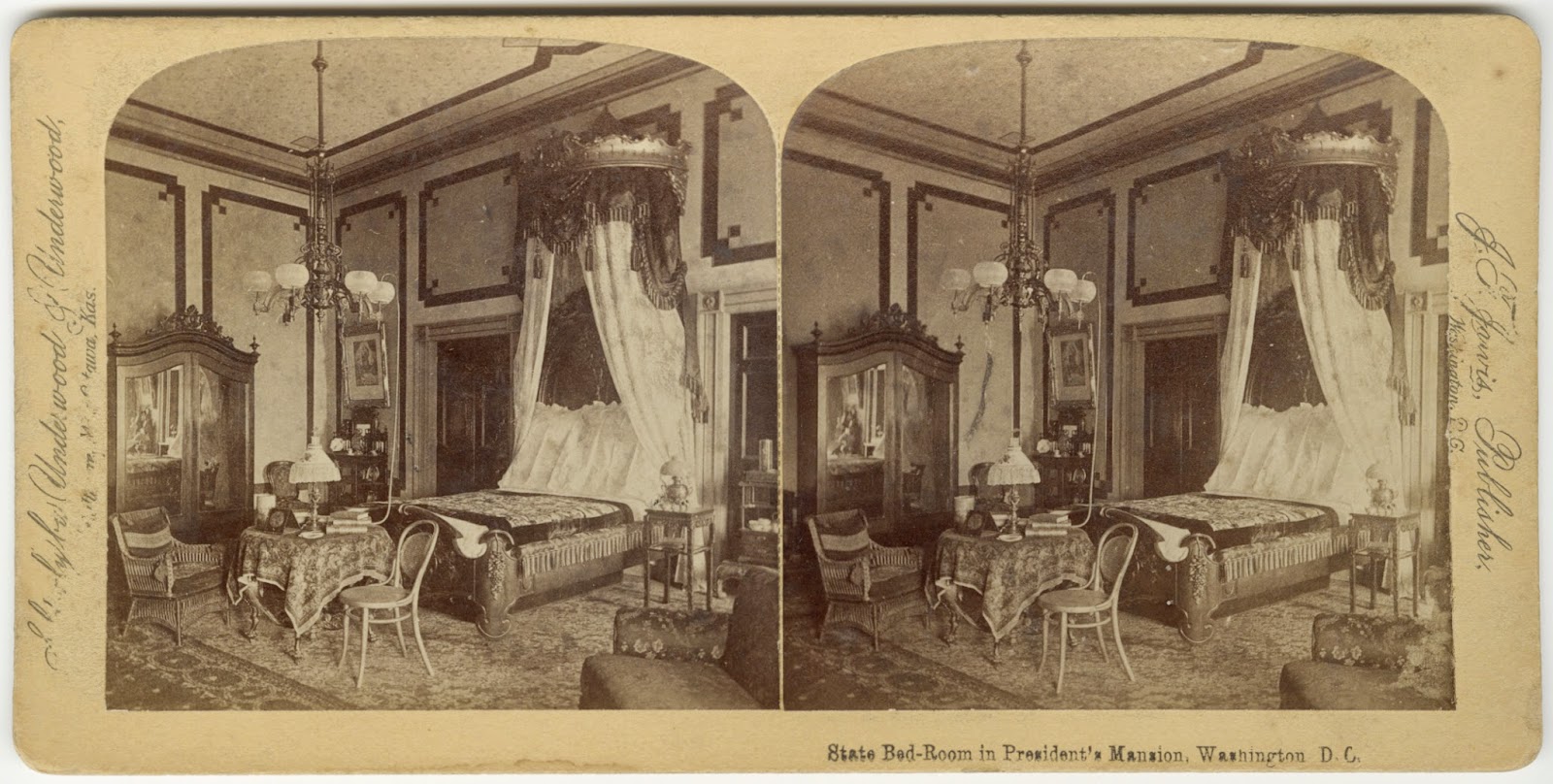Post by Cheney J. Schopieray, Curator of Manuscripts
Gone are the days of lawful, unannounced visits to the White House. The security of 1600 Pennsylvania Avenue NW has increased steadily since World War II and, for the protection of the First Family, will likely continue to expand. The following Civil War soldier’s story reminds us of the casual manner with which citizens could once visit the home of the President.
Sixteen-year-old Hugh P. Roden became a drummer in the 7th New Jersey Infantry Regiment in September of 1861. Within a month, Roden held a temporary position at Camp Casey in Arlington, Virginia. Despite marching orders forbidding him to leave camp, Roden traveled to Washington on the morning of October 12, 1861, in order to buy a new pair of shoes. While there, he entered the White House in hopes of requesting a transfer to the 2nd New Jersey Infantry Regiment, to serve beside his older brother George Roden.[1]
Roden entered the White House and, finding himself alone, rested a bit before ascending the stairs to the second floor. As he walked along the center hall carrying his old shoes under his arm, he heard voices coming from President Lincoln’s office. Upon entering, he joined several men who were hoping to find paid employment. The small group was a contrast to the throngs of persons that often crowded the reception area waiting for an audience with the President. In the narrative he produced the following day, Roden wittily remarked on the self-serving motives of the “office seekers.” The young drummer left the White House after speaking with the President and shaking his hand. He returned to the 7th New Jersey (adopting a stray cat along the way) and received a round of applause from his fellow soldiers for the tale of his “Adventure.”
“I was in the presidents house yeasterday I was all alone I had heard that they received visitors so I walked in to the reception room every thing is style there after I had reasted myself I went up stairs, I had my new shoes on my feet and the old ones under my arm but I wanted to see the President of this Glorious Republic so I marched along the large Hall till I was arested By the sound of voices wich proceeded from a Small room. I imediatly Continued my march in the Direction of said room when I arived who should I see But the Object of my search seated around a small table with other Men of less distinction. Some were Ofice seekers who were trying hard to talk sweet to the president. one man wanted an ofice as major in the reagular army and he Delivered a fine speach about Sheading his last drop of Blood for his — Country (Pocket) he said it was not for gain that he wanted the office but it was for to serve his country and he thought the country would be benefited By his Services. Mr President replied that there was not a Place open at present, But if his visitor was so willing to sacrifice for his country he could find Plenty of opportunity in the Volunteers. Th[e] Visitor sighed and walked away I shook hands with the President and took my leive of all the Hon members Promising to call again I poot my shoes under my arms and comenced my march to the Camp wile on the way I picked up a cat just like the Cat I had home, & carried it in triumph to the Camp where I was received with Shouts of Aplause and so ended my Adventure the cat sits at my feet while I am writing, little thinking that she Bears such a prominent part in my naritive”
Citation:
1. Basler, Roy Prentice Basler, ed. Collected Works: The Abraham Lincoln Association. Vol. 4. New Brunswick, N.J.: Rutgers University Press, 1953. Pages 552-553. The date given in the Collected Works is October 11, 1861, source the Daily Times of Troy, New York, in August 1881. Lincoln gave his approval for the transfer “if it will not injuriously affect the service.” The transfer does not appear to have taken place as Hugh Roden mustered out of the 7th New Jersey Infantry in the fall of 1864.


